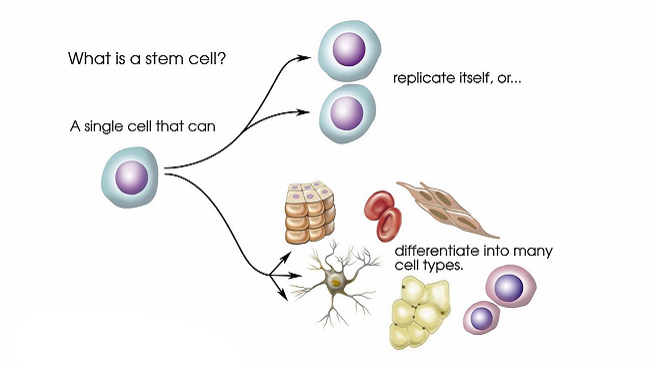Stem cells have the ability to transform and become various kinds of cells

Stem Cells: The Transformers of Biology

Stem cells are truly fascinating. These versatile cells have the remarkable ability to transform and become various kinds of cells within the human body. They hold immense potential for medical research, as they offer the opportunity to understand and treat a wide range of diseases and injuries more effectively.
But what exactly are stem cells? Stem cells are undifferentiated cells, meaning they have not yet assumed a specialized function in the body. Unlike other cells, which are committed to specific roles and have limited potential, stem cells have the ability to self-renew and differentiate into different cell types.
There are two primary types of stem cells: embryonic stem cells and adult stem cells. Embryonic stem cells are derived from embryos, usually created through in vitro fertilization. These cells are pluripotent, meaning they can differentiate into any cell type in the body. Adult stem cells, on the other hand, are found in various tissues and organs throughout the body. They are multipotent, meaning they can differentiate into a limited range of cell types related to the tissue or organ they reside in.

The transformative nature of stem cells has profound implications for medical treatments. Scientists and researchers are exploring ways to use stem cells to regenerate damaged or diseased tissues and organs. By coaxing stem cells to differentiate into specific cell types, it may be possible to replace damaged heart cells after a heart attack, regenerate spinal cord tissue after an injury, or restore pancreatic function in individuals with diabetes.
Stem cells are also crucial for understanding the development and progression of diseases. By studying stem cells, scientists can gain insights into the mechanisms behind diseases such as cancer and developmental disorders. This knowledge can lead to the development of more effective treatments and therapies.
However, despite their immense potential, the use of stem cells in research and medical treatments raises ethical questions. The source of embryonic stem cells, for instance, involves the destruction of an embryo. This controversy has led scientists to explore alternative methods, such as reprogramming adult cells to revert to a stem cell-like state, known as induced pluripotent stem cells (iPSCs). iPSCs offer similar potential as embryonic stem cells without the ethical concerns.
In summary, stem cells are extraordinary cells with the power to transform and become various types of cells within the human body. Their unique ability to self-renew and differentiate holds tremendous promise for revolutionizing medical treatments and advancing our understanding of human biology. As research in stem cell biology continues to evolve, we can look forward to a future where these cells play a vital role in improving human health and well-being.
Source: Library of Congress - Everyday Mysteries: What are stem cells?
Share
Related Posts
Quick Links
Legal Stuff

